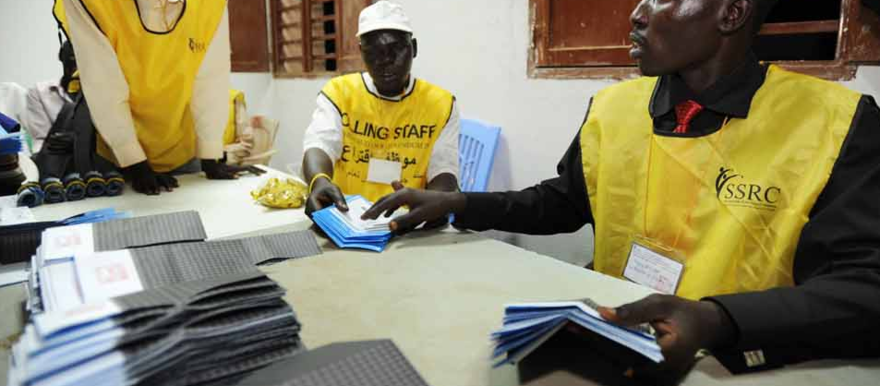'Focus on the Agreement' is a new daily segment broadcast on Radio Tamazuj to explain the contents of the peace deal signed in August 2015 between South Sudan's warring parties.
Yesterday we reviewed the structure and composition of state governments as defined by the agreement. Today we look at what the agreement says about elections.
Chapter 1, Article 16 of the peace agreement is about national elections. It explains when elections will take place and how they will be organized.
First, the act says that free and democratic registration of political parties will be permitted in South Sudan. This means that new political parties should be allowed to register in the country without interference from authorities.
Secondly, the agreement says that the President and First Vice President will agree on the formation of a National Elections Commission within seven months of he signing of the peace deal. The members of this commission must be approved by the parliament.
The National Elections Commission will be responsible for organizing elections for the positions of president, members of parliament, state governors and state members of parliament. These elections must take place 60 days before the end of the Transitional Period, which will be in 2018.
According to the agreement, the elections commission will be required to ask for support from the African Union and United Nations. This support may include civic education, establishment of voter registry, procurement of elections materials, tallying and counting, and other matters.
The government will not be required to conduct a population census before the elections. Article 16.9 of the peace agreement recommends modifying the existing constitution and legislation to waive the requirement of a census, saying that the same geographic constituencies can be used as the 2010 elections.
In case of any dispute regarding the conduct of the presidential or gubernatorial elections, the matter will be referred to the Supreme Court for determination. Their decision will be final and binding.



